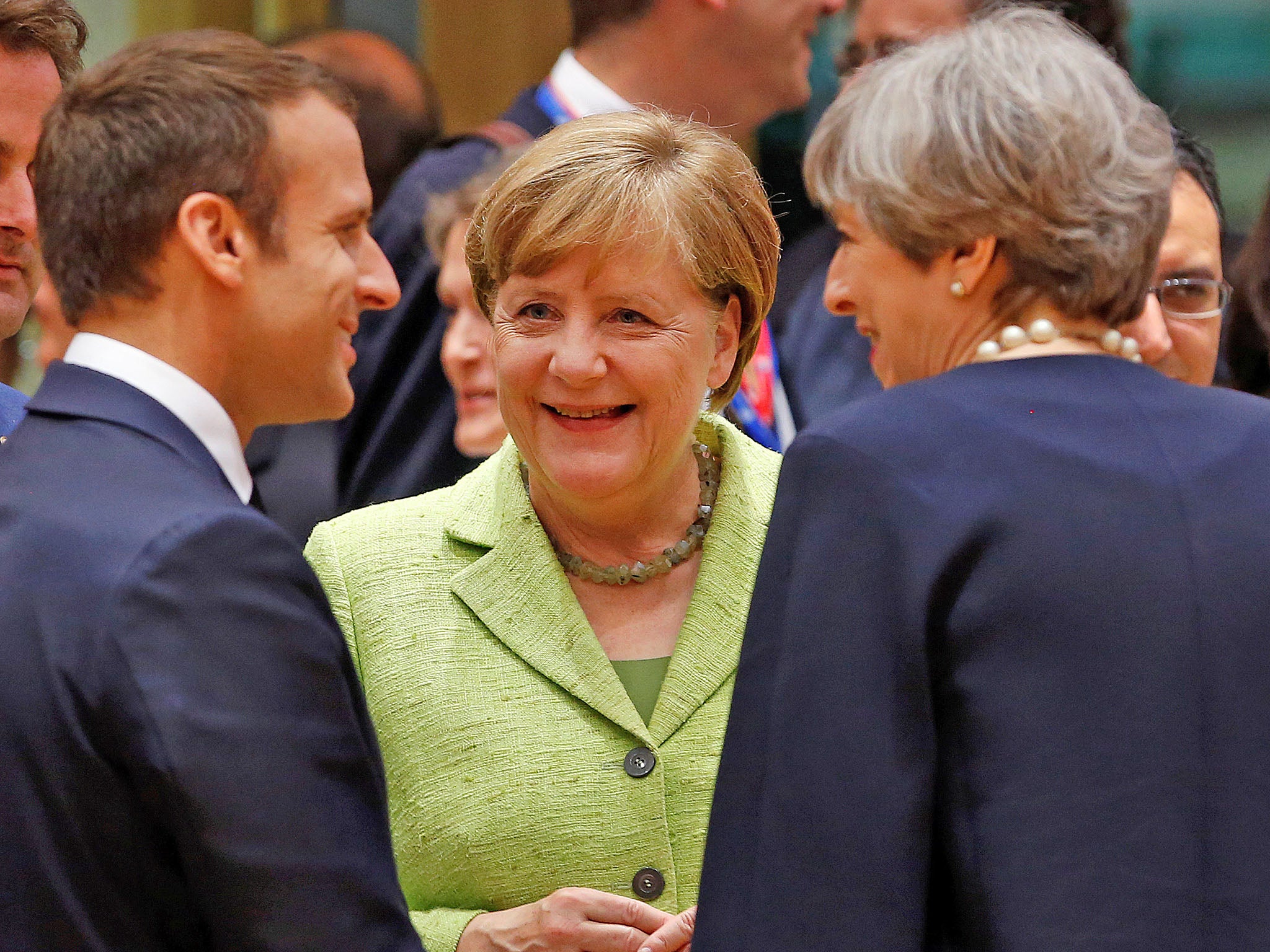Michel Barnier’s comments about educating Britain come from a deep-seated Gaullist jealously of Britain
France pushed for the single currency to take power away from Germany – but it backfired, and they remain at their beck and call


In remarks of staggering condescension, Michel Barnier, the European Union’s chief negotiator for Brexit, recently said that it was his job to “educate” the UK about the price of leaving the EU “club”. Brexit would be “an educational process” for the UK, he added.
How Barnier must have loved patronising us with these remarks. For Barnier was a Gaullist during his lengthy career in French politics. And for reasons that went back to the Second World War, General de Gaulle, who was President of France from 1958-1969, strongly disliked Britain. My guess is that Michel Barnier does too.
Is it really necessary, you may ask, to excavate the history of seventy years ago to explain off-the-cuff remarks made at a conference in Italy last week? In this case it is. When German forces overran France in 1940, De Gaulle, with a few followers, was able to escape to London. It was from London that he made his famous broadcast on 18 June exhorting the French people not to be demoralised and to continue to resist the occupation of France.
However, and this is the key, de Gaulle ever afterwards remembered his four years in London as a series of humiliations. The sinking of France’s Mediterranean fleet at Mers-el-Kebir in July 1940 by the Royal Navy in order to keep it out of the hands of the Germans always rankled. He also felt he was a largely ignored in London. At American insistence, he was not informed of the Allied landing in French North African territory before they took place. France was not invited to the wartime negotiations between the Allies such as the Yalta talks. And after the war was won, France was effectively shut out of all major decisions over Germany.
So Barnier’s remarks should be seen as a bit of a payback for wartime humiliations on one of the few occasions when such revenge became possible. But while he gets on with “educating” us, I should like to remind him of some aspects of France’s policy towards Europe.
It is powerfully driven by fear of Germany. This has been a constant. In 1950, for instance, following the start of the Korean War, US President Truman, proposed that Germany should be rearmed and integrated into the defence of Western Europe. The French vehemently opposed the American plans. Then five years later, when negotiations to form the European Economic Community, a predecessor of the European Union, were under way, France’s default position was that French industry should be protected until it was strong enough to meet German competition. But finally France agreed to open its market in return for preferential access for its meat, dairy and grain products (the famous Common Agricultural Policy).
The last time that France was able to control Germany was at the time of the fall of the Berlin Wall in 1989. In French eyes, Germany divided was reassuringly weak; Germany united would be frighteningly strong. Faced with this, the French President, François Mitterrand, came to believe that a single European currency was the only way for other European countries to regain the sovereignty they had already lost to Germany – and in particular to the German central bank, which maintained a super-strong Deutsche Mark.
Hans Kundnani tells in his recent book, The Paradox of German Power, how in September 1989, the French President remarked to Thatcher that “without a common currency we are all already subordinate to the German’s will”. In due course this deal was enshrined in the Maastricht Treaty of 1992. Thus the eurozone and the euro were created not for profound economic reasons but to assuage France’s perennial fear of German power.
With such origins, it is not surprising that the eurozone has not worked well. Nor did its invention prevent Germany gaining leadership of the European Union with France trailing behind. So no surprise, really, that on the very day that Emmanuel Macron was elected French President (7 May 2017), he had a 10-minute phone conversation with German Chancellor Angela Merkel and told her that he would travel to Berlin “very quickly.” He duly arrived in Berlin on 19 May.
No newly appointed British Prime Minister feels he or she should take the first plane to Berlin. Indeed I suspect that what really sticks in Barnier’s throat is that the British, unlike the French, are not the least bit frightened of Germany.
Join our commenting forum
Join thought-provoking conversations, follow other Independent readers and see their replies
Comments